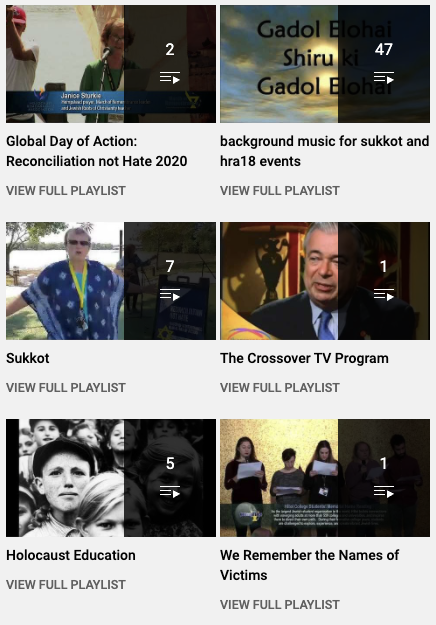Double major political science and computer science
The Holocaust’s reputation as an atrocious genocide reduces this nightmare to focus on the massive numbers of lives that were lost. The much more jarring implication was that it was enabled through the willingness of several people who made intentional decisions to remain silent. Whether this occurred as a result of fear, subservience, or some indescribable feeling does not justify the horrors that took place in World War II or today. The HRA virtual march has taught me that waiting until tragedies amass to the extent of the Holocaust repeats the same cycles of violence which permeated Germany during the World Wars. Instead, we must acknowledge the brutality of the Holocaust in order to fight against the xenophobia associated with COVID-19, the blatant institutional racism which the Black Lives Matter movements have taken a stance against, and deny our desire to be a safe bystander to stand up for the communities that are suffering.
The horrors of the Holocaust are a necessary reminder that unrecognized biases have disastrous effects on humanity. Rozalie Jerome, a second-generation descendant of Holocaust survivors discusses how her parents were betrayed by their own neighbors. These neighbors, while most likely unaware of the consequences of their actions, uncovered the identities of Jerome’s parents which resulted in them being sent to Auschwitz. The neighbors were easily susceptible to the propaganda of the war which highlighted Jewish people as scapegoats due to their present, yet hidden biases which classified Jewish people as inferior or dangerous. Jerome’s parents were horrified upon discovering the reason behind their eviction and translocation as they had coexisted peacefully for several years. Actions like this, however, are a testament to the danger of prejudice which can cultivate without an overt presence and prove violent beyond imagination. Furthermore, Baerbel and Anna-Suzette Pfeiffer, third and fourth generation Nazi descendants of an electrician who used to work at Auschwitz, relived the traumatic experience of discovering their grandfather’s role in the death of hundreds of thousands of innocent people. They learned that their grandfather laid the pipelines for gas chambers which were used to exterminate large masses of people instantly. Additionally, they discovered how doctors engaged in disgusting experimentation where they would burn the skin of children just to see the results. Mothers, upon seeing their children in pain, ran into the electrical barbed wire fence surrounding the concentration camp. This was the fence Pfeiffer’s grandfather built. It is difficult to imagine a world in which the level of moral degradation is so unbelievably high that people are willing to harm children for the sake of satisfying their own curiosity. This is not surprising, however, because people who deployed these heinous crimes carried a prejudice against Jewish people. They were not people in their eyes, but rather, they were test subjects, disposable items, worthless bodies. This heartbreaking realization is necessary in order to understand that crimes against humanity originate in a place of hate and ignorance. Nazis did not understand, or refused to understand, that their problems were not caused by Jewish people. Differences did not constitute offense or danger.
Differences-in race, gender, social status, origin-pave the way for violence when viewed in a negative light. One of the promises of America to many cheery faced immigrants was that anyone from anywhere could build a successful life in America. This is part of the reason why this nation is so incredibly diverse, and a city like Houston magnifies this ten-fold. While these differences deserve to be celebrated, Rabbi Dan Gordon from the HRA virtual march perfectly describes why these differences can be used against us in one simple statement: “People have an inherent fear of the unknown.” It is normal to not understand different cultures, but as members of the human race, we have an obligation to check those fears and remedy them through education. The prejudice seen in the Holocaust still thrives today in issues regarding race relations, and most recently, with the spread of COVID-19. There has been an astonishing increase in hate crimes against Asians as a result of the false belief that Asians manufactured and spread the virus. A new analysis released by the Center for the Study of Hate and Extremism found that anti-Asian hate crimes increased by nearly 150% in 2020 resulting in acts such as 6 innocent women being shot by Robert Aaron Long or several Asian American home owners saying they have dealt with verbal abuse such as receiving racial slurs or physical abuse such as having rocks thrown at their houses. I am personally affected by this violent prejudice as my parents immigrated to the United States from Pakistan, and we have been the target of previous racially motivated grievances. My father was insulted at work and ultimately fired for his race, and we have had people attack our mosque in disgusting ways. While I was aware of the rise in anti-Asian crimes, it really hit a nerve when I saw Jung Kim, a store owner in Houston, being punched by a woman who was hurling racial slurs at her. The aggravating part of this act was the attempt by the aggressor’s lawyer to paint this crime as not one that was racially motivated despite surveillance footage, but rather, as the fault of the victim. This is the same logic Nazi leaders used to justify Jewish extermination.
I have always learned about the Holocaust in terms of the tragic loss of lives, but I have begun to understand that the real tragedy was the astonishing loss of humanity, loss of morals, and loss of empathy portrayed during these times. To reduce our willingness to act to only when lives are lost is to address the issue after it is too late. The root cause of the Holocaust was the immense anti-Semitic prejudice that permeated society, and that root cause reveals itself today when police officers commit crimes against minorities or when people attack those from a different background. There are a few incredibly important lessons from the brutality of the Holocaust: to never be a bystander, to check one’s biases before they result in horrendous actions, and to recognize that our differences should be celebrated rather than negated. As we live in a time where those that we have known for a long time-friends, neighbors, colleagues- reveal their true identities and feelings with racist tweets, cold shoulders at gatherings, and a look of disgust when we enter the room, it is more important than ever for us to stand up for those who feel alone. We need to call out the colleague who posts an insensitive message, shop at Asian owned businesses-especially at a time like today where anti-Asian rhetoric has brought them a financial hit- and support initiatives like that of the HRA march to bring awareness to anti-Semitism. This is the first step to deter prejudice from festering into violence. We must rally our support to ensure that the loss of life along with the moral degradation of the Holocaust never happens again.

